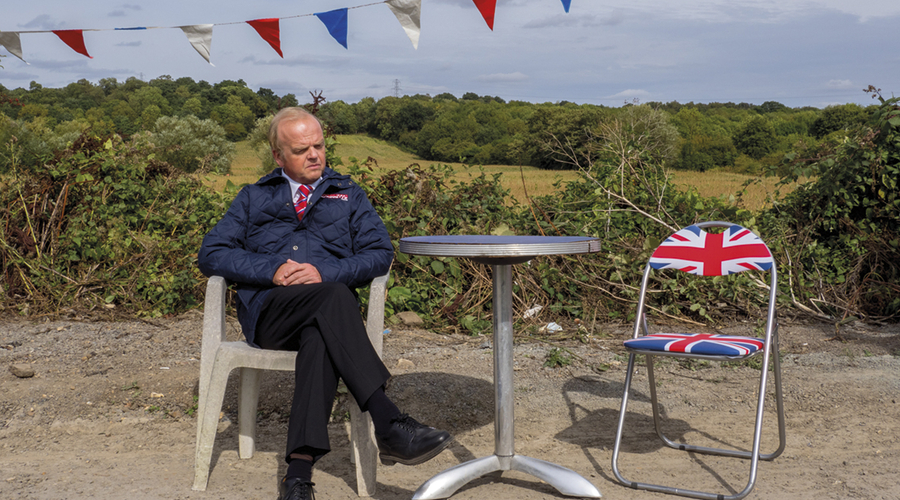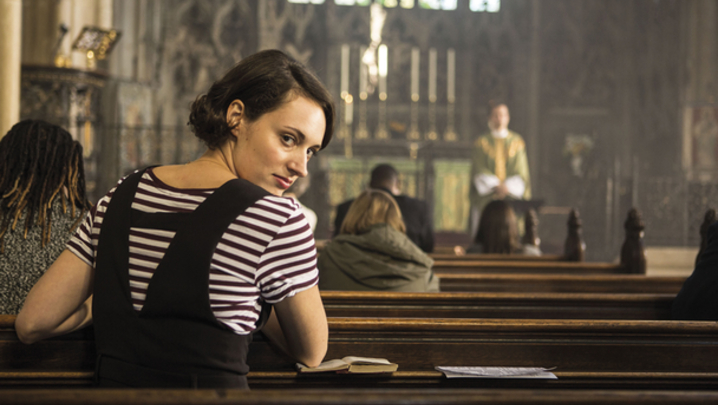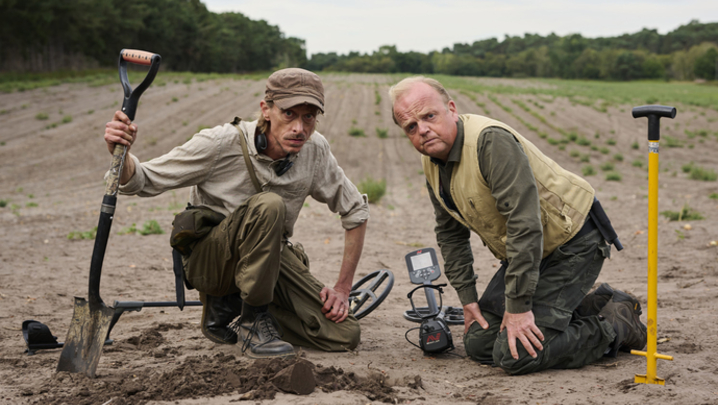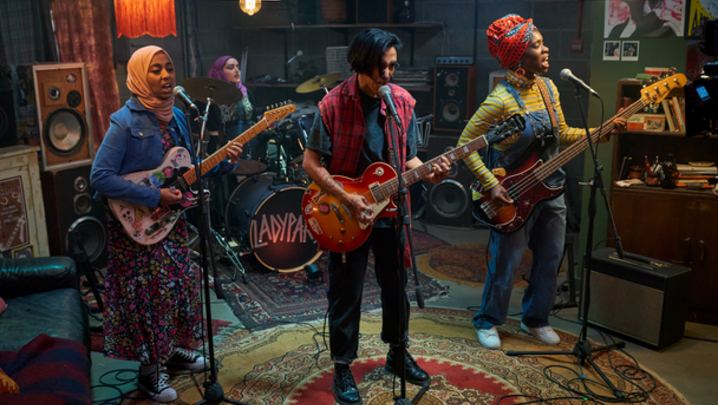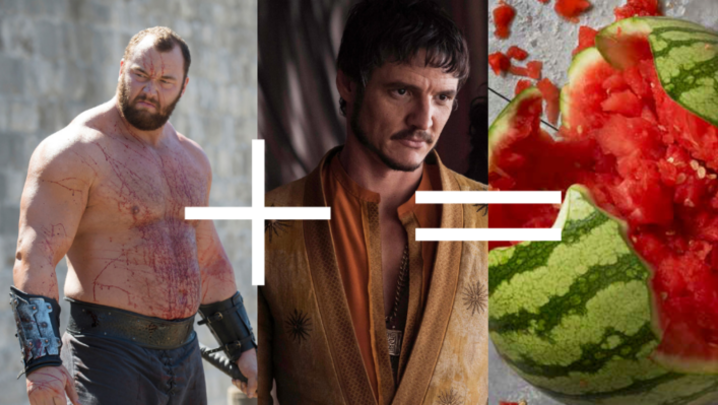Actor Toby Jones debuts as a TV writer, with BBC Two’s Don’t Forget the Driver. He tells Ben Dowell what it was like to co-write and star in his own show
You wait years for a TV comedy centred on the disruption caused by the sudden arrival of a foreign migrant in a settled world and, suddenly, two come along at once.
This spring, Channel 4 has showcased Home, Rufus Jones’s well-received show in which his uptight character, Peter, and partner return from holiday to find a Syrian man called Sami (Youssef Kerkour) living in the boot of the family car.
Now comes BBC Two’s Don’t Forget the Driver, the first TV show written by actor Toby Jones and playwright Tim Crouch. It stars Jones as a harassed Bognor Regis coach driver, also called Peter. But, while Home is amiable, jolly and laugh-a-minute, exploring the ups and downs of its wisecracking family whose members (Peter aside) are largely happy to take Sami into their lives, Don’t Forget the Driver embraces a darker and more unflinching palette.
"If your writing is open to the world, then the world will come into your writing"
This was signalled in the very first minutes of episode one, when Peter finds a dead body washed up on the Bognor shoreline. Our hero, to his intense shame, runs away from this discovery.
Later, he finds that he cannot ignore the plight of a frightened young Eritrean woman, called Rita, whom he finds hiding in the bowels of his coach following a cross-Channel trip.
Although unaware that another show dealing with the arrival of immigrants would hit TV screens alongside their own, neither Jones nor Crouch is that surprised (and at the time of speaking, neither Jones nor Crouch had seen Home). “The themes are pretty prominent at the moment in the world we’re living in,” says Crouch. “If your writing is open to the world, then the world will come into your writing.”
That writing experience was, he admits, an eye-opener. He is a stage writer, used to working alone and it took some time to get the collaboration into gear, once he had persuaded his friend (they’ve known each other for 20 years) to explore his initial idea of writing about a Bognor coach driver.
The actor, who had never written for TV before, found the prospect irresistible. “I was very interested in trying to see what I have learned over the years from reading scripts and their emergence through various drafts,” he says.
Jones was also “definitely” inspired by his experience performing in the award-winning Detectorists. There, he watched writer/director Mackenzie Crook create his own beautifully funny and gentle world of Essex metal-detecting enthusiasts.
Indeed, Don’t Forget the Driver’s ability to tease laughs from a very clear but ordinary setting does seem straight from the Detectorists’ hymn book.
“We were encouraged to use our own voices,” says Jones. “We were encouraged to write situations out of which human comedy arises, rather than gags. I don’t want people to feel like they are being hammered over the head and have to laugh all the time.”
For Crouch, their show is another sign of a healthy cross-fertilisation between his own world of theatre and TV. He was in the audience at the 2013 Edinburgh Fringe when Phoebe Waller-Bridge’s Fleabag was first performed.
He cites Fleabag and Stewart Lee’s masterly stand-up performance in his BBC Two Comedy Vehicle shows as examples of an exciting new trend in TV. “In the past, I think that there has been a stronger cross-fertilisation back from telly to theatre, with – depressingly, sometimes – theatre trying to emulate the form of television,” he notes. “Now, it’s working the other way.”
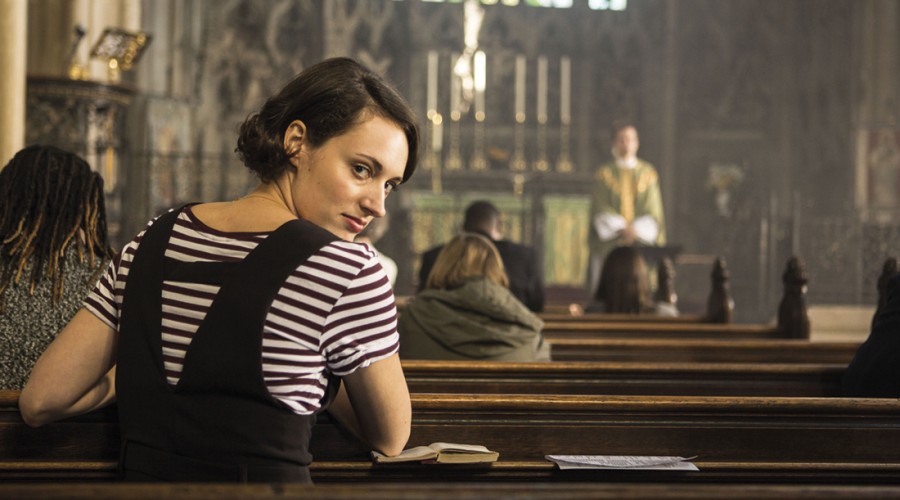
Once Crouch and Jones had completed the scripts, they realised that they had to film what was, on many levels, essentially a drama on a comedy budget. All six episodes were shot on a fairly punishing 31-day schedule.
“We kind of wrote a drama with a different location for every episode and a different constituency of characters for every episode… there’s a big cast list,” laughs Crouch.
They also had their battles. Opening a comedy with a dead body is certainly a bold move, the scene was something they had to fight to keep in. Similarly, they had to defend the many studied moments of slow TV.
In the first episode, when Peter takes a party to visit war graves in Dunkirk, the mesmerically sedate winching of a boat and a sequence in which a pensioners’ mobility scooter ambles tortoise-like across the screen.
That opening episode also contains a telling moment, when the elderly passengers cheer the subject of the UK leaving the EU. So what about the B-word?
Don’t Forget the Driver was, it turns out, conceived long before the leave vote on 23 June 2016. But the writers admit that the Brexit saga permeates the piece. As well as Rita, the refugee, we meet Lech, a supremely optimistic Polish man who sleeps rough in Peter’s bus and whom the driver tolerates amiably.
"I am not sure that you could write something now that couldn’t be interpreted in terms of Brexit"
“Everything is about Brexit,” says Crouch, seemingly reluctant to directly address the question. “Even the weather forecast is about Brexit.… We are not blind to that… it feels like the language we are using at the moment.”
Jones is adamant that the show “doesn’t say anything about Brexit specifically”, and doesn’t actually use the word at all, just as it pointedly doesn’t use the word “migrant” or “refugee”.
“It’s about human beings,” he emphasises. “I am not sure that you could write something now that couldn’t be interpreted in terms of Brexit, anyway.”
However, the writers admit that they did work out what all the characters would have voted in the EU referendum, with most of the imagined ensemble putting their cross against the leave box. Jones won’t be drawn on whether Peter is a leaver or remainer – “he probably didn’t have time to vote,” he laughs – but the pair admit that, probably, he would have voted Conservative in the past.
“It’s about Bognor and, if you look at Bognor, a lot of things are going on in the town and in the street,” pleads Crouch. “I think Antiques Roadshow is a very political show – do you know what I mean? But you’d never talk about the ‘politics of Antiques Roadshow’.”
“We felt the driver was also Love in some way. That it’s Don’t Forget the Love.… [The characters] are all in danger of forgetting the love in the business of their lives and in their own private hell, their own private problems and dilemmas and contradictions.”
That’s true. But, at one point during our interview, Crouch talks about the elderly passengers cheering Brexit as “mildly bigoted xenophobes”. The writers don’t want to shove politics down our throats (or court controversy) but the show clearly comes from a defiantly liberal perspective, I suggest. And doesn’t most TV? Is that a problem for the industry as a whole, I ask – that creative people like them don’t feel comfortable representing the views of people who don’t share their outlook?
Crouch answers by insisting that Don’t Forget the Driver “is not a piece full of liberal left-wingers”. His job is not to trumpet his own personal views and “allegiance”.
But he doesn’t really address the fact that one of the key “drivers” of this show, as it were, is Peter’s conversion – from apathy to action, from shutting out the world to letting it in. It’s a laudable idea but, perhaps, a predictable one.
Jones agrees with his co-writer that their creation doesn’t preach. He says he doesn’t want a “state of the nation” label attached to it.
But he is still prepared to make bold claims for it, citing its title, which refers to the note on Peter’s tip basket which he keeps next to his driver’s seat.
“[The characters] might forget the fact that their primary objective and function in life is to love each other,” he says. “That’s why Don’t Forget the Driver is the title. That’s why it’s on Peter’s tip box… because it’s a pretty good tip.”

